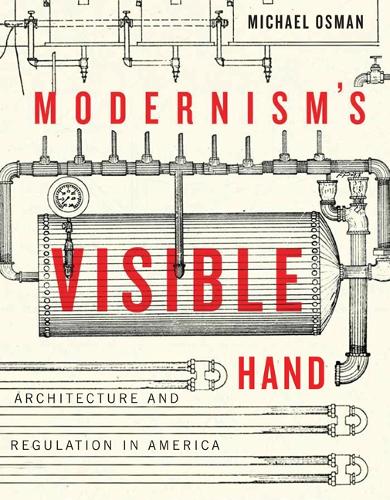
Modernism's Visible Hand: Architecture and Regulation in America
(Hardback)
Available Formats
Publishing Details
Modernism's Visible Hand: Architecture and Regulation in America
By (Author) Michael Osman
University of Minnesota Press
University of Minnesota Press
10th April 2018
United States
Classifications
Tertiary Education
Non Fiction
Environmentally-friendly and sustainable architecture and design
720.47
Physical Properties
Hardback
280
Width 178mm, Height 229mm, Spine 38mm
Description
A groundbreaking history of the confluence of regulatory thinking and building design in the United States
What is the origin of room temperature When did food become considered fresh or not fresh Why do we think management makes things more efficient The answers to these questions share a history with architecture and regulation at the turn of the twentieth century. This pioneering technological and architectural history of environmental control systems during the Gilded Age begins with the premise that regulationof temperature, the economy, even the freshness of foodcan be found in the guts of buildings. From cold storage and scientific laboratories to factories, these infrastructures first organized life in a way we now call modern.
Drawing on a range of previously unexplored archival resources, Michael Osman examines the increasing role of environmental technologies in building design from the late nineteenth century. He shows how architects appropriated and subsumed the work of engineers as thermostats, air handlers, and refrigeration proliferated. He argues that this change was closely connected to broader cultural and economic trends in management and the regulation of risk. The transformation shaped the evolution of architectural modernism and the development of the building as a machine. Rather than assume the preexisting natural order of things, participants in regulationincluding architects, scientists, entrepreneurs, engineers, managers, economists, government employees, and domestic reformersbecame entangled in managing the errors, crises, and risks stemming from the nations unprecedented growth.
Modernisms Visible Hand not only broadens our conception of how industrial capitalism shaped the built environment but is also vital to understanding the role of design in dealing with ecological crises today.
Reviews
"Michael Osman weaves a complex web of interaction between architecture, science, and technology, as well as between architecture, business, and management. Modernism's Visible Hand is not only brilliant, it is also path-breaking."Antoine Picon, author of Smart Cities: A Spatialised Intelligence
"Michael Osman takes us on an extraordinary journey through turn-of-the-twentieth-century modern American life, travelling from temperature-controlled homes and cold-storage warehouses, to Pennsylvania's factories and Indiana's sand dunes. This engrossing, brilliant book is an altogether new look at American architecture, technology, and everyday life; it will be of immense value to readers interested in all these subjects."Daniel M. Abramson, author of Obsolescence: An Architectural History
Author Bio
Michael Osman is associate professor of architecture at the University of California, Los Angeles.
